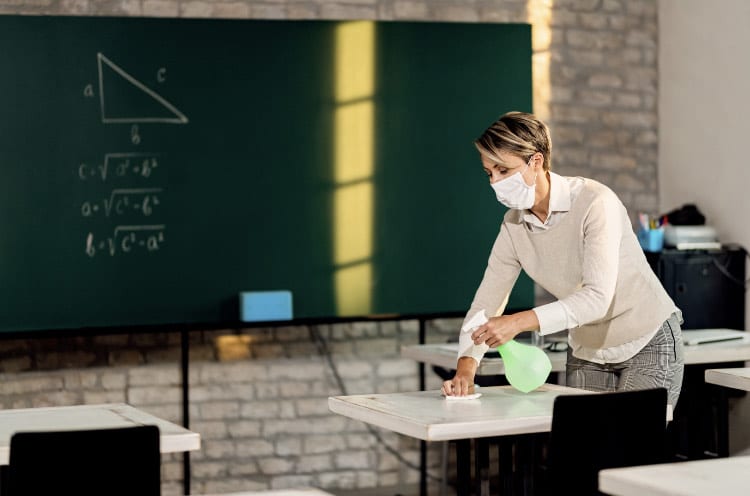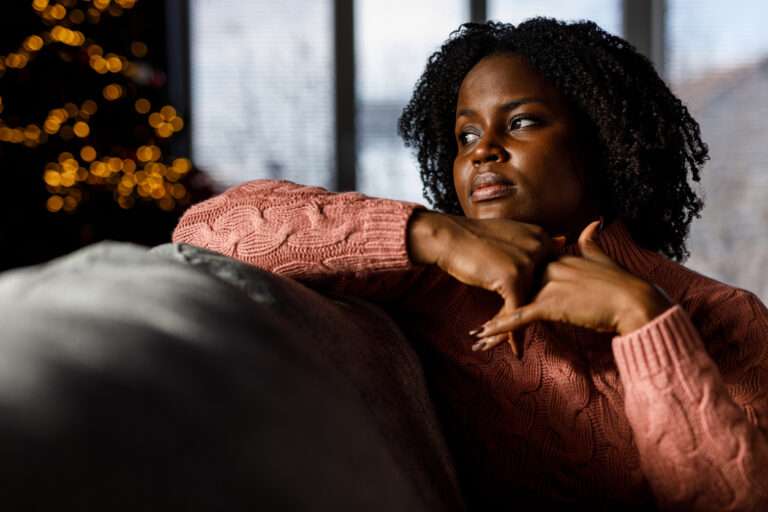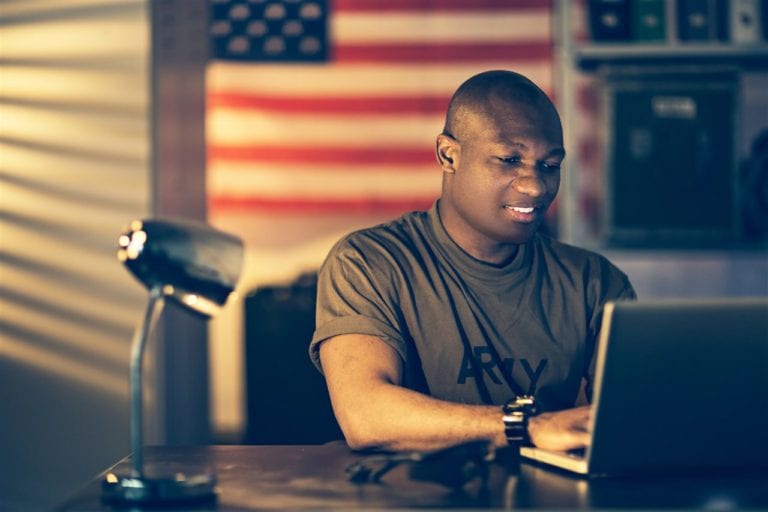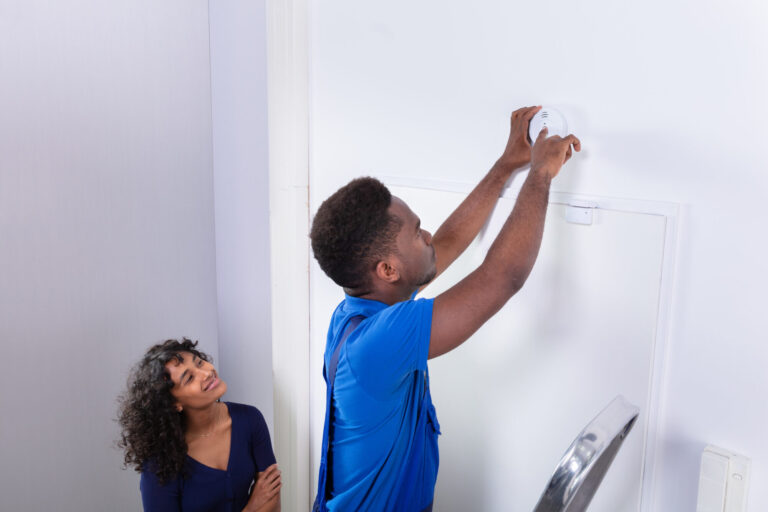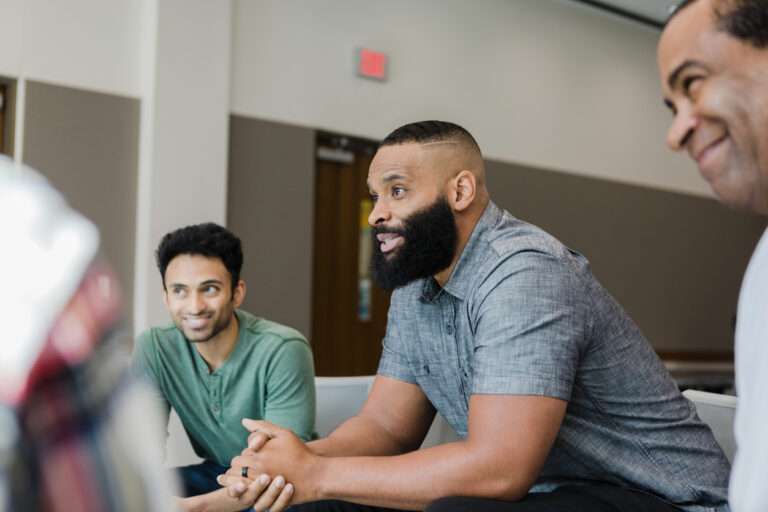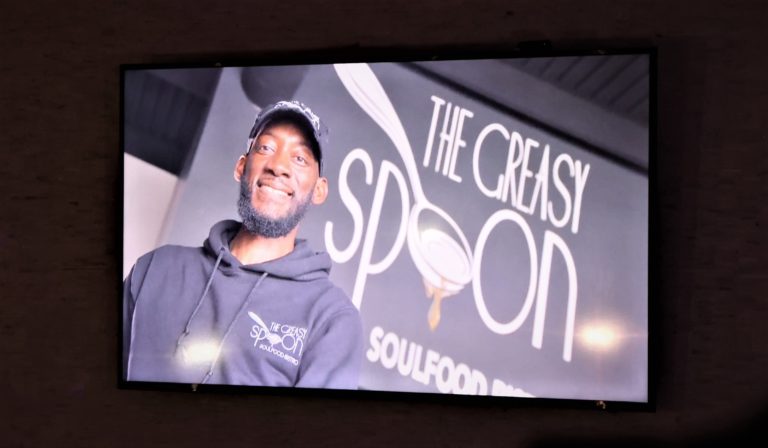By d-mars.com News Provider
While the rollout of the vaccine has been a relief for the nation’s teachers, many of whom have been working in-person on and off since the start of the pandemic, the reality is that not everyone will get the vaccine. What’s more, being in the school building all day with children who are not yet approved for immunization leaves many educators and school staff vulnerable to COVID-19, no matter how many precautions they take while off the clock.
But there’s good news: new scientific breakthroughs are helping make schools safer by protecting surfaces for far longer than routine cleaning, which does so only momentarily.
The Problem
Human coronaviruses can persist on inanimate surfaces such as plastic, glass, fibers and metals for up to nine days, according to the National Institutes of Health. While routine cleaning and disinfection help, they leave surfaces immediately vulnerable to recontamination, particularly in highly trafficked areas like break rooms, desks, lockers, and especially school and classroom entrances. Traditional disinfectants alone can’t guarantee full coverage, protect for long periods, or even prevent recontamination. On top of that, the burden of constantly reapplying momentary disinfectants throughout the day has largely fallen on teachers, many of whom are paying for cleaning supplies out of their own paychecks.
A New Solution
In keeping America’s teachers safe, standard cleaning methods alone can only do so much. A new EPA-approved product, however, when used as directed, offers continuous protection from COVID-19 with a single application, making school safety more reliable and efficient. The product, SurfaceWise2, was developed by biotechnology company Allied BioScience, which has a mission of reducing the footprint of global infection caused by the transmission of microorganisms encountered in daily life.
“The pandemic has put more responsibilities on schools than ever before, and our teachers are stretched thin,” says Jess Hilton, chief marketing officer, Allied BioScience. “Providing additional safety measures for this sometimes overlooked frontline worker group is critical.”
As leading infectious disease expert Dr. Charles P. Gerba explains, schools have always been a major germ transfer zone, and the pandemic has only elevated this health and safety risk.
“The average child touches their face about 40 to 50 times per hour,” says Dr. Gerba. “Having a reliable way to protect surfaces for long periods of time is essential.”
Independent lab studies conducted by Dr. Gerba found SurfaceWise2 to be effective against Human Coronavirus 229E, the EPA-approved surrogate, demonstrating the ability to successfully protect against COVID-19. Coated surfaces were found to reduce the concentration of these viruses by greater than 99.9% within two hours of contact.
SurfaceWise2 has undergone rigorous reviews and extensive safety testing, carrying the lowest possible EPA toxicity rating making it safe to use in enclosed spaces, which is critical as teachers must work inside the classroom. The coating is non-toxic, non-irritating, and contains no chemicals that produce harmful vapors or gases. To learn more, visit www.surfacewise.com.
“Alongside precautions like mask-wearing and social distancing, effective long-term coatings to protect surfaces can allow schools to better keep their teachers safe, and help make the choice between safety and livelihood a little easier for America’s educators,” says Hilton.
Source: StatePoint
Photo Source: (c) Drazen Zigic


